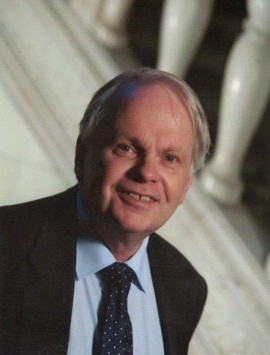Professor Michael Kopelman, neuropsychiatrist and specialist in memory disorders from King's College, London, will be one of the keynote speakers at our Student conference on the 10th of April at 10.30 a.m. Professor Kopelman has kindly provided us with a short interview.
 Michael Kopelman is Professor of Neuropsychiatry at the Institute of Psychiatry, King's College London, and runs the Neuropsychiatry and Memory Disorders Clinic at St Thomas's Hospital. He is a past President of the British Neuropsychological Society, President of the International Neuropsychiatric Association and immediate past-President of the British Academy of Forensic Sciences. Professor Kopelman is also a leading expert witness in human rights (appeal court) and criminal cases involving memory, amnesia, automatism or other neuropsychiatric matters, including false confession, extradition and deportation cases. He has given evidence in appeal court cases in which convictions have been overturned 47 years, 26 years, 25 years, 19 years and 12 years after the original trial and conviction. Cases include the five Belmarsh detainees, four Guantanemo Bay returnees, the Jill Dando/Barry George trials of 2001 and 2008, and one of the Sion Jenkins trials. For more info click here.
Michael Kopelman is Professor of Neuropsychiatry at the Institute of Psychiatry, King's College London, and runs the Neuropsychiatry and Memory Disorders Clinic at St Thomas's Hospital. He is a past President of the British Neuropsychological Society, President of the International Neuropsychiatric Association and immediate past-President of the British Academy of Forensic Sciences. Professor Kopelman is also a leading expert witness in human rights (appeal court) and criminal cases involving memory, amnesia, automatism or other neuropsychiatric matters, including false confession, extradition and deportation cases. He has given evidence in appeal court cases in which convictions have been overturned 47 years, 26 years, 25 years, 19 years and 12 years after the original trial and conviction. Cases include the five Belmarsh detainees, four Guantanemo Bay returnees, the Jill Dando/Barry George trials of 2001 and 2008, and one of the Sion Jenkins trials. For more info click here.
We understand that you are planning to talk about Korsakoff/thalamic amnesia and to give a general general overview of memory disorders. Please could you briefly describe the main focus of your lectures?
In my first talk I will be describing the clinical, neuropsychological and neuroimaging features of the alcoholism-related Korsakoff syndrome, including a brief discussion of confabulation, and then comparing them with what is known about thalamic amnesia. In the second talk, I will review different types of memory disorder, transient and persistent, neurological and psychogenic, with video-clips of case-examples.
What are your main research interests at the moment?
We have studies underway of cerebral hypoxia and hippocampal atrophy, encephalitis, HIV and ageing, confabulation, anosagnosia for hemiplegia, and a trial of cognitive rehabilitation in dementia.
As a member of Forensic Psychiatry Chambers you have acted as an expert witness in many cases, including amnesia for offences, false confessions, civil liberties, death row, or extradition proceedings and some civil cases mainly involving head injury. Could you briefly describe to us one or two cases that you personally found the most interesting or extraordinary?
You might like to look at this website: http://www.theguardian.com/uk/2008/aug/02/jilldando.ukcrime. The site refers to the murder of Jill Dando, the face of TV's Crimewatch programme and a well-known BBC presenter, who was killed by a single shot to the head outside her house at London. Professor Kopelman's report on Barry George, the man accused of her murder, together with a lack of forensic evidence, led to George's eventual acquittal. In addition, Professor Kopelman's paper 'Memory Disorders in the Law Courts' is available at http://mlj.sagepub.com/content/81/1/18.abstract (editor's comment).
As the cultural program during the Student conference is on the subject of love, my final question is: what is love from the point of view of a neuropsychiatrist?
I don't have much to comment here except to say that there is an example in psychiatry of what can happen when love goes wrong in De Clérambault's syndrome, which I have discussed in a case example in the past.
Thank you.
-ter-
